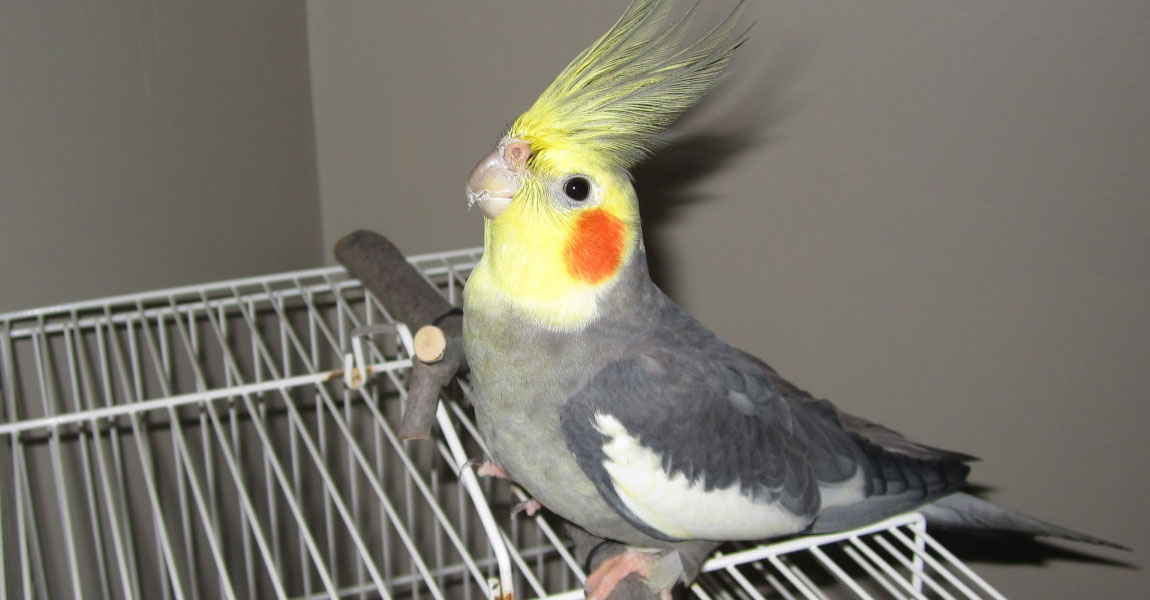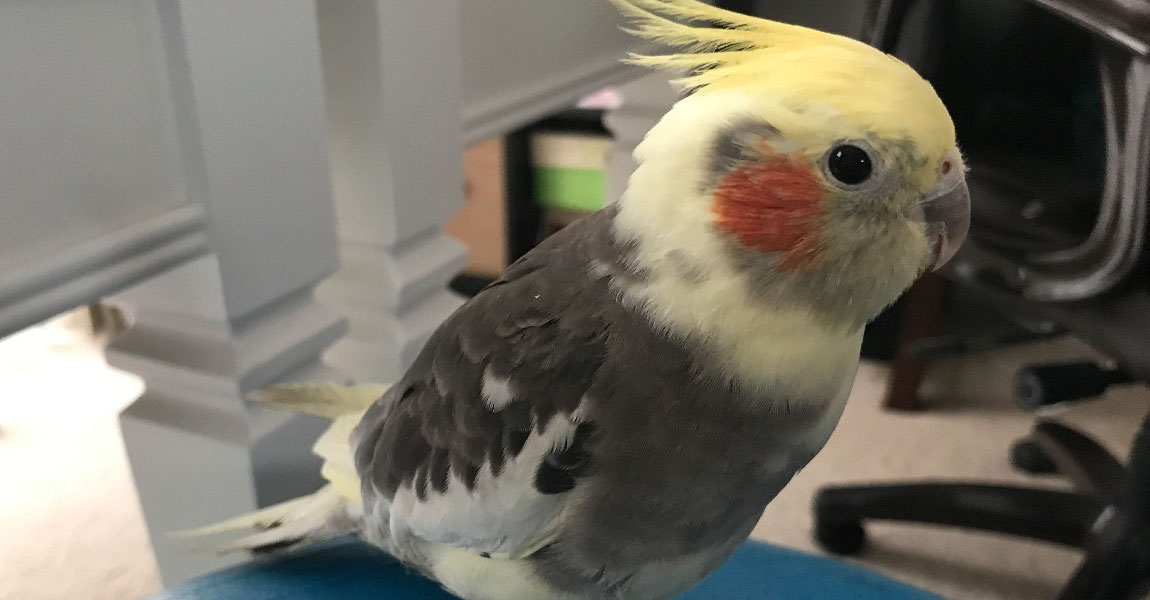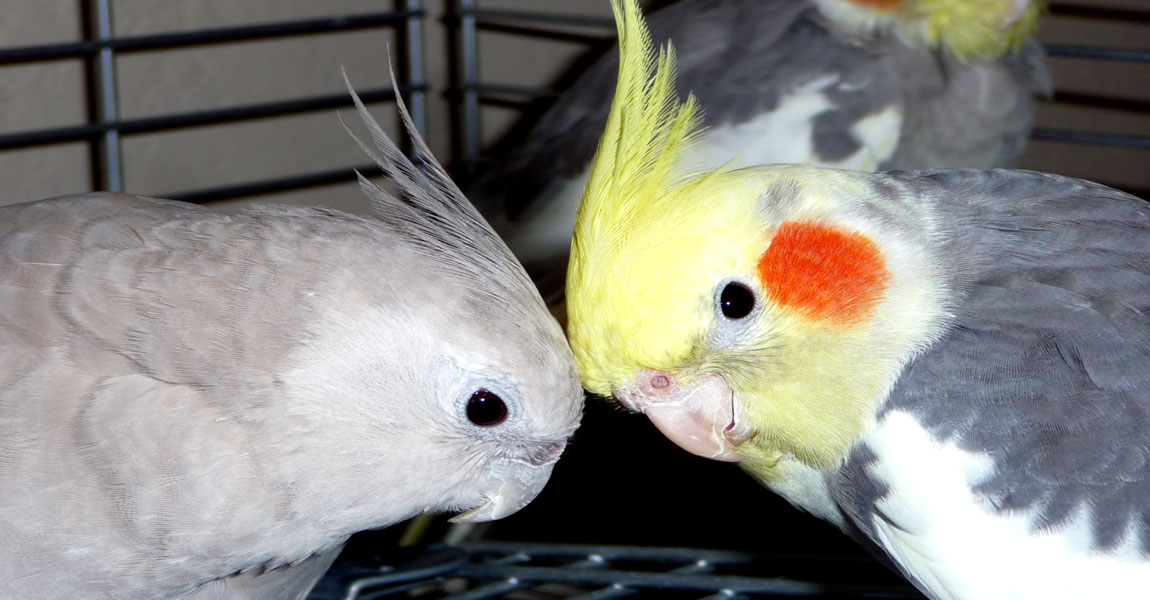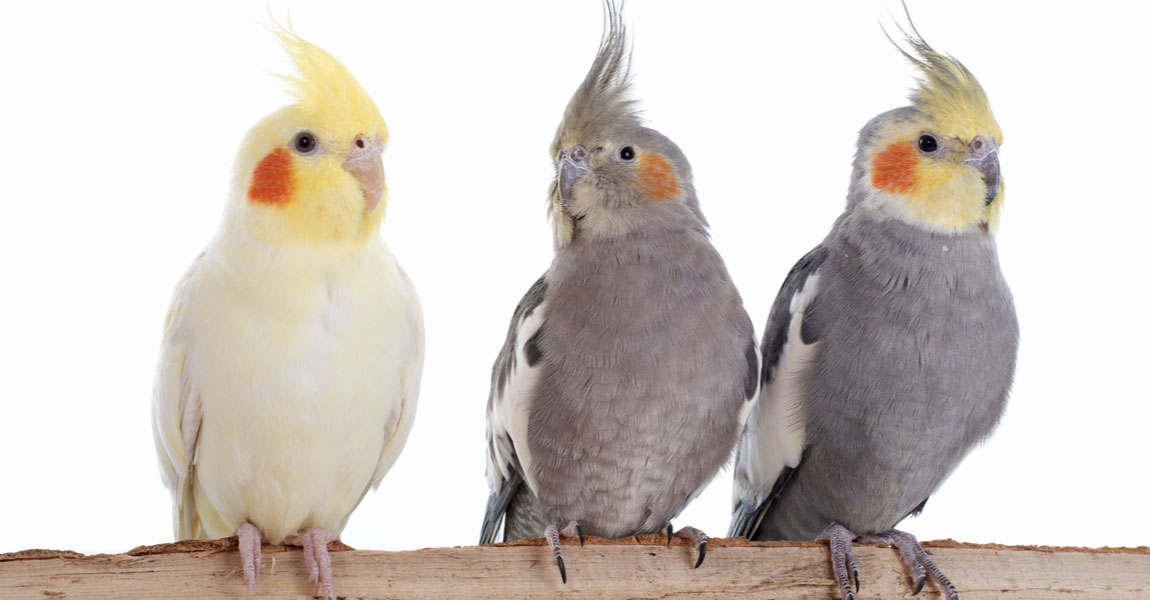Basic Symptoms:
As always the information offered here is to provide guidance and is not intended to be a substitute for the good advice provided by your own avian vet. When in doubt always consult your own veterinarian.
1. Tail bobbing, sitting "down on the perch" (crouching over its feet), and sitting on the floor of the cage.
2. Sneezing, clicking respiration (cough), brown-stained feathers above the nostrils (runny nose), or breathing difficulty occurs.
3. A change in or loss of voice or song is apparent.
4. Your cockatiel's behavior changes; it becomes sleepy (eyes closing), less active, and withdrawn.
5. There is a change in appetite. Loss of appetite or increase appetite.
6. Your bird drinks more water than normal.
7. Droppings become loose or change in colour.
8. The number of droppings decreases. Count the number of droppings daily when changing the cage. Fewer droppings may indicate that your cockatiel is not eating well.
9. Your bird 'fluffs up'.
10. A long molt and scratching or picking feathers occurs.
11. Head tucked under wing and standing on two feet
12. Losing balance, teetering, or falling off of perch
13. Trembling
14. Not preening
15. Eyes dull, sunken, or abnormal color
16. Walking in circles
17. Unusual smell
18. Drooped or elevated wing(s)
Can I get my cockatoo sick?
Your cockatiel can't catch a cold from you but if your cold leads to a secondary bacterial infection, you can spread it to your pet bird. Take precautions to keep your cockatiel healthy when you're sick and learn the signs that indicate your bird may have a respiratory infection.
What is too cold for cockatoo?
A pet cockatoo should live in relatively consistent temperatures, as they are unable to adapt and regulate their body heat when environmental temperatures change. Ideally, a cockatoo's environment should be kept between 72 and 80 degrees Fahrenheit.
What to do when you think your bird is sick or injured.
The first thing to do is to try to get your bird to a vet as soon as possible, preferably an avian vet. If your vet is not available right away, place the sick bird in a warm, humid and dim area with a temperature of 80 to 85 degrees Fahrenheit. This area should be as quiet and secluded as possible. To create a warm environment: Cover a small bird cage with a towel and place it on a heating pad that is set on low. Minimize handling of the ill bird as much as is possible. Excessive handling may overly stress the bird, aggravate shock and lead to death.
Sick birds can dehydrate rapidly due to lack of water consumption and the disease processes. Fresh, clean water should be available at all times. Electrolyte solutions can help by rehydrating the bird more quickly and also provide replacement of those electrolytes by using commercial electrolyte fluids such as Pedialyte
Source: Cockatiel.com





